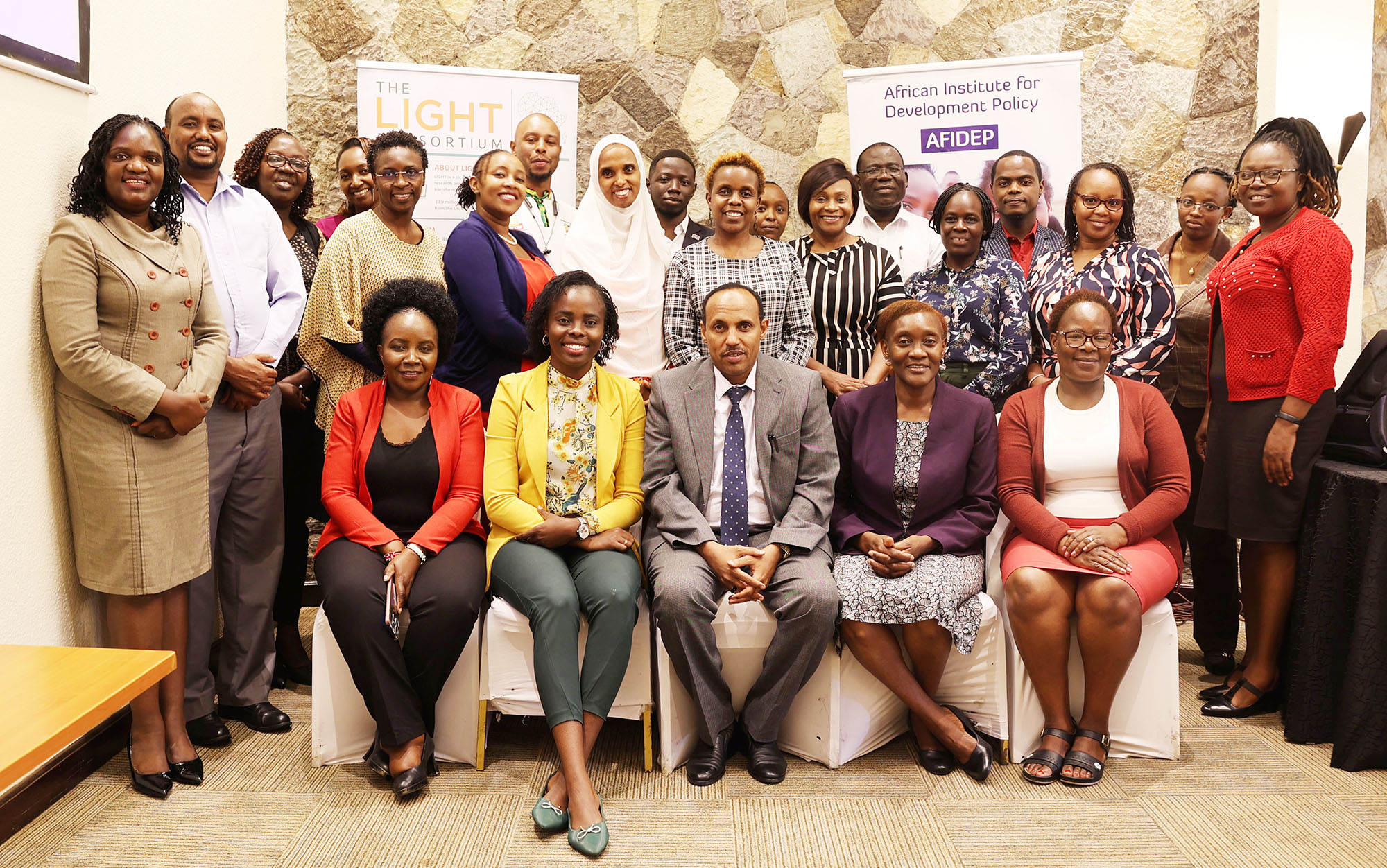Blogs

The collective understanding of the best available evidence is crucial in tuberculosis (TB) programming efforts to attain effective policies and interventions towards ending TB globally. TB remains a significant global health challenge. According to the World Health Organization (WHO), an estimated 10.6 million people fell ill with TB in 2022, up from 10.3 million in 2021 and 10.0 million in 2020, with Africa bearing the highest TB burden. Utilising evidence is vital for developing targeted interventions to address social determinants of health and promote equitable access to TB prevention, diagnosis and treatment services, particularly amongst vulnerable populations. It is therefore essential for stakeholders working to end TB to be equipped to make effective and evidence-informed decisions.
To support this, the Leaving no-one behInd: transforming Gendered Pathways to Health for TB (LIGHT) Consortium brings together stakeholders to inform policy discussions with evidence on how gender-responsive policies can significantly enhance access to TB prevention, diagnosis, and care. On 27th March 2024, LIGHT Consortium partners in Kenya, the African Institute for Development Policy (AFIDEP) and the Respiratory Society of Kenya (ReSoK), conducted a half-day sensitisation workshop in Nairobi to enhance understanding and technical capacity in evidence-informed decision-making (EIDM) among key TB stakeholders. Selected stakeholders included representatives from the National Tuberculosis, Leprosy and Lung Disease Program (NTLD-P), the Kenya Medical Research Institute (KEMRI), Stop TB Partnership Kenya, Nairobi City County Council, Centre for Health Solutions and AMREF Kenya. The workshop provided insights into understanding EIDM principles and incorporating them into their different respective roles within their programmes.
Addressing participants, Prof. Jeremiah Chakaya, Chief Executive Director (ReSoK) highlighted:
“Evidence for a long time, shows men have a higher burden of TB than women, however, while there are various ideas of how to address the problem, unfortunately, there has been no formal testing of those ideas – thus, the critical value for evidence-use. LIGHT Consortium aims to meet this unmet need to generate evidence to develop global policy and practice recommendations. Also, to ensure a people-centred approach in enabling access to TB prevention and care through a gendered lens.”
AFIDEP, works to develop capacity within institutions to drive a cultural shift of evidence-use that enables impactful investments towards transforming people’s lives for the better. At the event, Dr Leyla Abdullahi, Senior Research and Policy Analyst at AFIDEP, delved into the critical role of the EIDM process. She urged stakeholders to identify high-priority areas within their programmes, select intervention options, and assess barriers to implementation. She also emphasised the importance of continual monitoring and impact evaluation of the interventions for effective health policy formulation.
Despite ongoing commendable efforts to reduce TB prevalence in Kenya, it remains a significant public health challenge. Through small group discussions, the stakeholders engaged and came up with responses on the best ways to promote and practice EIDM. They also identified opportunities available for them to instil the culture. Inadequate financial and human resources, time constraints, and infrastructural challenges/limitations are some of the persistent barriers to evidence-use in ending TB in Kenya, the stakeholders noted. By employing advocacy approaches to enhance EIDM, stakeholders can better engage decision-makers and foster greater uptake of evidence. Effective advocacy not only raises awareness but also catalyses the political will and resources necessary to implement interventions and accelerate progress towards ending TB in Kenya.
Evaline Kibuchi, Chief National Coordinator, Stop TB Partnership Kenya, said:
“There are various challenges TB stakeholders face in policy implementation in Kenya, for instance, gaps in coordination and donor-driven targets. Government agencies, healthcare providers, NGOs, and international partners must work together to strengthen healthcare systems, improve infrastructure, and increase financing, based on evidence to promote awareness about TB prevention and treatment.”
EIDM in TB programming requires strategic approaches that resonate within organisations. It is crucial for the Ministry of Health and other stakeholders to recognise its value in forging systems to achieve an EIDM culture. This can be realised by:
- Emphasising good quality programmatic data collection, analysis and reviews.
- Integrating and utilising data in developing annual work plans.
- Allocating resources at various county governance levels.
- Encouraging the documentation of best practices and lessons learned at all programmatic levels.
- Supporting research, monitoring, and evaluation processes to pinpoint areas of efficacy and potential improvement.
Aiban Ronoh, Section Head of Monitoring, Evaluation and Research, and Acting Head of Policy and Planning at the Kenyan Ministry of Health’s (MoH) Division of National Tuberculosis, Leprosy, and Lung Disease Program (DNTLD-P, presented on how the MoH seniors optimise an evidence-use culture within their programme and beyond. He noted that the current National Strategic Plan (NSP) for Tuberculosis, Leprosy, and Lung Health 2023/24 – 2027/28 has captured a clear roadmap towards achieving equitable, gender-transformative access to services, especially among marginalised and vulnerable groups, largely based on evidence.
To fully optimise an evidence-use culture, it is imperative to expand EIDM training to other sectors such as the Ministry of Transport, Ministry of Education, and advocacy groups like the Centre for Research Evaluation Assessment and Dissemination (CREAD), Committees of Experts and Technical Working Groups (COEs/TWGs). Such EIDM roll-out can lead to more informed, effective, and defensible decisions, resulting in better health outcomes for individuals, institutions, and communities.
LIGHT continuously engages stakeholders to build capacity on new evidence on the effectiveness of different gender-responsive pathways and approaches to health for those with TB. LIGHT aims to engage strategically with a range of key national, regional, and global stakeholders to ensure that our research is informed, relevant, effectively communicated and timely for maximum impact.

